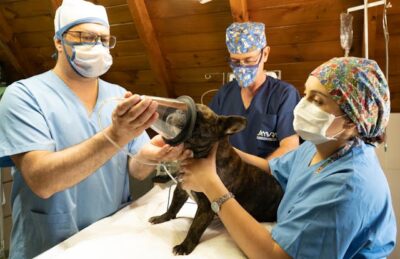Overview
Introduction to Dog Coughing

Dogs cough. It’s a common occurrence that can range from a minor annoyance to a sign of a serious health issue. Understanding why your dog coughs, the symptoms to watch for, and the appropriate treatments can help you ensure your furry friend stays happy and healthy.
Whether it’s a dry, hacking cough or a wet, productive cough, this comprehensive guide will provide you with everything you need to know about dog coughs.
Importance of Understanding Dog Coughing
Understanding dog coughing is crucial for every pet owner. A persistent cough could indicate various underlying issues, such as heart disease, respiratory infections, or irritants in the dog’s nasal passages.
Ignoring a dog’s cough could lead to more severe health problems, including difficulty breathing and contagion to other dogs. Recognizing when and why a dog is coughing can help owners seek timely veterinary care and ensure their pet’s well-being.
Overview of Dog Respiratory System
Understanding dog coughing is vital as it can signal various issues within a dog’s windpipe, dog’s throat, dog’s heart, upper respiratory tract, or dog’s lungs.
A persistent cough could indicate infections, irritants, or even heart problems, necessitating prompt veterinary attention. Recognizing the underlying cause of a dog’s cough can lead to effective treatment and better respiratory health for the furry friend.
Normal vs. Abnormal Coughing in Dogs
Differentiating between normal and abnormal coughing in dogs is crucial. An occasional, mild cough is considered normal, especially after drinking or eating too quickly.
However, a chronic cough or a cough that becomes more frequent or severe could indicate an underlying health issue.
Recognizing these signs can help pet owners identify when their dog’s coughing may be a symptom of an infection or other health concern, prompting them to seek veterinary care promptly.

Types of Dog Coughing
Dry Cough
Dry coughing in dogs is characterized by a harsh, hacking cough that often sounds like something is stuck in the dog’s throat. This type of cough is typically unproductive, meaning no phlegm or mucus is expelled.
Dry coughing in dogs can be caused by various factors, including respiratory infections, allergies, or irritants in the air. It’s essential for pet owners to monitor their dog’s dry cough closely and consult with a veterinarian if it persists or is accompanied by other symptoms.
Wet or Productive Cough
A wet or productive cough in dogs is characterized by the expulsion of phlegm or mucus. This type of cough often indicates an underlying respiratory infection, such as bronchitis or pneumonia.
A wet cough in dogs may sound moist and gurgling, and it is essential to seek veterinary care promptly to determine the cause and appropriate treatment.
Honking Cough
A honking cough in dogs is a distinctive sound that can be alarming for pet owners. This type of cough is often associated with tracheal collapse, a condition where the dog’s windpipe narrows, making breathing difficult.
Tracheal collapse is more common in small breeds and can be triggered by excitement, exercise, or pressure on the trachea. If a dog is coughing in a honking manner, it is important to seek veterinary care for proper diagnosis and treatment.
Coughing Fits
Coughing fits in dogs are episodes of intense and prolonged coughing that can be distressing for both the dog and the owner. During these fits, dogs may have difficulty breathing and may produce a significant amount of phlegm or mucus.
Coughing fits can be caused by various factors, including infections, irritants, or tracheal collapse, a condition where the cartilage rings in the windpipe weaken. If a dog experiences frequent or severe coughing fits, it is important to seek veterinary attention to determine the underlying cause and appropriate treatment.

Common Causes of Dog Coughing
Kennel Cough (Bordetella)
Kennel cough, caused by Bordetella bronchiseptica bacteria, is a common reason for dogs to cough. This highly contagious respiratory disease spreads easily in places where dogs congregate, such as boarding facilities and dog parks.
Apart from kennel cough, dogs may also cough due to other bacterial and viral infections. Treatment often includes addressing the primary infection and managing symptoms to ensure the dog’s comfort, which may include treating secondary infections if present.
Canine Influenza
Canine influenza, caused by the canine influenza virus, is a contagious respiratory disease that can lead to coughing in dogs. This virus is similar to the human flu virus and can cause mild to severe respiratory symptoms.
In some cases, bacterial infections can occur as a complication of canine influenza, leading to further respiratory distress.
Heartworm Disease
Heartworm disease is a serious condition caused by the parasitic worm Dirofilaria immitis, transmitted through mosquito bites.
As the worms mature and multiply, they can clog the heart and major blood vessels, leading to congestive heart failure in severe cases. This can result in coughing, especially during physical activity, due to the strain on the heart and lungs.
Heartworm disease can also increase the risk of bacterial infections, pulmonary hypertension, and high blood pressure in affected dogs. Prevention through regular deworming medication is key to avoiding this potentially fatal disease and the associated heart disease.
Tracheal Collapse
Tracheal collapse is a common cause of coughing in dogs, especially small breeds. This condition occurs when the cartilage rings that support the trachea weaken, causing the trachea to flatten or collapse, making it difficult for air to pass through.
While not typically life-threatening, tracheal collapse can be serious, especially if it progresses or is left untreated. Managing the condition through weight management, avoiding irritants, and using medications to reduce coughing can help improve a dog’s quality of life.

Allergies
Allergies can be a common cause of coughing in dogs, leading to symptoms such as chronic bronchitis and a higher susceptibility to bacterial infections.
Irritants like cigarette smoke can exacerbate these allergic reactions, causing coughing fits. Dogs with allergies may also experience a phenomenon known as reverse sneezing, which can sometimes be mistaken for coughing.
Foreign Objects
Foreign material, such as small toys, bones, or grass seeds, can become lodged in a dog’s throat or airways, leading to coughing as the body tries to expel the object.
This can be a serious issue, especially if the object obstructs the airway and interferes with breathing. If a foreign object is suspected, prompt veterinary attention is crucial to safely remove the object and prevent further complications.
Others
In addition to the common causes mentioned earlier, other factors can lead to coughing in dogs. Aspiration pneumonia can occur when a dog inhales a foreign substance, like vomit or food, into their lungs, causing coughing and respiratory distress.
Ingestion of rat poison can also result in coughing, along with other symptoms. Additionally, more serious conditions such as lung cancer, bacterial infections, and congestive heart failure can manifest as coughing in dogs.
Treatment often involves addressing the underlying cause, managing symptoms, treat secondary infections if present, and suppress coughing. If a dog is coughing blood or experiencing severe symptoms, immediate veterinary attention is necessary.

Symptoms and Signs of Dog Coughing
Persistent Coughing
Persistent coughing in dogs can indicate various underlying issues, including respiratory infections, heartworm disease, or tracheal collapse.
It’s crucial to seek veterinary care to identify the cause and start appropriate treatment, which may include addressing secondary infections. Regular check-ups and prompt attention to coughing symptoms can help maintain your dog’s health and well-being.
Gagging or Retching
Gagging or retching in dogs, especially small breeds, can be a sign of tracheal collapse or other respiratory issues. It’s important to monitor your dog’s symptoms, as occasional coughing or gagging can progress to more serious conditions.
If your dog is coughing or gagging frequently, consulting with a veterinarian is advisable to determine the underlying cause and appropriate treatment.
Wheezing or Labored Breathing
Wheezing or labored breathing in dogs, particularly small breeds, can indicate a variety of respiratory issues, including asthma, heartworm disease, or congestive heart failure.
If your dog is experiencing these symptoms along with coughing, it’s important to seek veterinary care promptly. Early detection and treatment can help manage these conditions and improve your dog’s quality of life.
Nasal Discharge
Nasal discharge in dogs, especially if accompanied by coughing, can indicate respiratory infections such as kennel cough or sinusitis. The discharge may be clear, mucoid, or purulent, depending on the underlying cause.
If your dog is exhibiting nasal discharge along with other symptoms, it’s advisable to consult with a veterinarian for proper diagnosis and treatment.
Fever
In a coughing dog, a fever can indicate an underlying infection. While an occasional cough may not be alarming, if it’s accompanied by other signs such as lethargy, loss of appetite, or nasal discharge, it’s advisable to consult with a veterinarian.
Monitoring your dog’s symptoms and seeking prompt veterinary care can help identify and address any potential health issues.

Diagnosing Dog Cough
Physical Examination
In veterinary medicine, diagnosing a dog’s cough often involves a thorough physical examination by a veterinarian. The vet will listen to the dog’s lungs and heart, assess overall health, and ask about the cough’s frequency and characteristics.
Maintaining a healthy weight and seeking immediate veterinary treatment if the cough is persistent or accompanied by other concerning symptoms are important for ensuring the dog’s well-being.
Diagnostic Tests (X-rays, Blood Tests)
Diagnostic tests, such as X-rays and blood tests, are often used to further evaluate a dog’s cough, especially if there are concerns about compromised immune systems or underlying respiratory conditions.
X-rays can reveal signs of infection, foreign material, or other issues affecting the lungs and airways. Urinalysis, fecal examination, chest X-ray, along with blood test can help identify underlying causes and assess the overall health of the dog.
If a dog is experiencing trouble breathing or other concerning symptoms, these tests can provide valuable information to guide treatment and management.
Tracheal Endoscopy
Tracheal endoscopy is a diagnostic procedure used to examine the inside of a dog’s trachea (windpipe) using a thin, flexible tube with a camera.
This procedure allows veterinarians to visually inspect the trachea for abnormalities such as inflammation, collapse, or foreign objects. Tracheal endoscopy is often performed under sedation or anesthesia to minimize discomfort for the dog.

Treatment Options for Dog Coughing
Medications (Antibiotics, Cough Suppressants)
For dog coughing caused by a bacterial infection or severe cases of coughing, antibiotics may be prescribed to treat the underlying infection. Cough suppressants can also be used to decrease inflammation and minimize symptoms.
In cases where an underlying respiratory condition is present, anti-inflammatory medications may be prescribed to help manage the condition and improve blood flow to the affected areas.
It’s important to seek veterinary care immediately if your dog is coughing excessively or showing signs of distress.
Home Remedies (Humidifiers, Honey)
Home remedies such as using a humidifier in the dog’s environment or giving them honey can help soothe a dog’s cough. Honey can be given in small amounts to help coat the throat and reduce irritation.
However, it’s important to consult with a veterinarian before administering any home remedies, especially if the cough persists or worsens.
Lifestyle Changes (Reduced Exercise, Avoiding Irritants)
For dog coughing, lifestyle changes such as reducing exercise and avoiding irritants can help alleviate symptoms. Dogs with difficulty breathing or experiencing reverse sneezing may benefit from these adjustments.
Monitoring your dog’s environment and minimizing exposure to triggers can contribute to their comfort and overall respiratory health.

Preventing Dog Cough
Vaccinations
Vaccinations are key in preventing common causes of dog coughing, such as kennel cough, which is often caused by Bordetella bronchiseptica bacteria. Vaccines can also protect against other respiratory infections that can lead to chronic bronchitis or exacerbate underlying heart disease.
Keeping your dog’s vaccinations up to date can help reduce the risk of these infections and the associated complications, such as high blood pressure and pulmonary hypertension.
If your dog shows signs of infection, such as coughing or changes in their skin or breathing, seek veterinary care immediately to prevent further complications.
Regular Veterinary Check-ups
Regular veterinary check-ups are crucial in preventing dog coughing by allowing early detection and treatment of underlying conditions.
During these check-ups, your veterinarian can assess your dog’s overall health, recommend appropriate vaccinations, and provide guidance on maintaining a healthy lifestyle.
These visits help ensure that any potential issues are addressed promptly, reducing the risk of respiratory problems and other health issues.
Avoiding Exposure to Sick Dogs
Avoiding exposure to sick dogs is important in preventing the spread of respiratory infections that can cause coughing in most dogs. Limiting contact with an infected dog and avoiding places where sick dogs congregate can reduce the risk of transmission.
Good Hygiene Practice
Good hygiene practices, such as regularly cleaning your dog’s living area and grooming them properly, can help prevent respiratory infections that lead to coughing.
Washing your hands after handling other dogs, especially if they are sick, can also reduce the risk of transmission.

When to See a Veterinarian
Signs of a Serious Condition
If your dog’s cough is persistent, accompanied by other concerning symptoms such as difficulty breathing, lethargy, or coughing up blood, it’s important to see a veterinarian promptly.
These signs can indicate a serious underlying condition that requires immediate medical attention. Early diagnosis and treatment can help improve your dog’s prognosis and quality of life.
Duration of Coughing Episodes
If your dog’s coughing episodes last longer than a week or if they are frequent and severe, it’s advisable to see a veterinarian.
Persistent coughing can be a sign of an underlying issue that needs to be addressed. Your veterinarian can determine the cause of the cough and recommend appropriate treatment to help your dog feel better.
Managing Chronic Dog Cough
Chronic Bronchitis
Managing chronic bronchitis in dogs involves long-term management to control symptoms and improve quality of life.
Treatment may include medications to reduce inflammation and open the airways, as well as lifestyle changes such as avoiding irritants and maintaining a healthy weight. Regular veterinary check-ups are important to monitor the condition and adjust treatment as needed.
Collapsing Trachea
Managing collapsing trachea in dogs often involves lifestyle changes and medications to alleviate symptoms. Keeping your dog at a healthy weight and avoiding activities that can trigger coughing episodes are important.
Your veterinarian may also prescribe medications to reduce inflammation and help manage the condition. Regular check-ups are essential to monitor the progression of the disease and adjust treatment as needed.
Conclusion to Dog Coughing
Recap of Key Points
- Dog coughing can range from a minor annoyance to a sign of a serious health issue.
- Understanding the symptoms and causes of dog coughing is crucial for pet owners.
- Different types of coughs, such as dry, wet, honking, and coughing fits, can indicate various underlying conditions.
- Common causes of dog coughing include kennel cough, canine influenza, heartworm disease, tracheal collapse, allergies, and foreign objects.
- Recognizing the signs of dog coughing and seeking veterinary care promptly is essential for proper diagnosis and treatment.
Importance of Prompt Veterinary Care for Dog Coughing
Prompt veterinary care for dog coughing is crucial as a persistent cough could indicate serious health issues such as respiratory infections, heart disease, or tracheal collapse. Ignoring a dog’s cough could lead to more severe health problems, including difficulty breathing and contagion to other dogs.
Early diagnosis and treatment can help improve your dog’s prognosis and quality of life, making regular veterinary check-ups and prompt attention to coughing symptoms essential for maintaining your dog’s health and well-being.
Explore our selection of puppies for sale in Ohio and surrounding areas. Our puppies are thoughtfully bred from reputable breeders, raised as part of our family, and guaranteed to exceed your expectations, bringing joy and companionship into your home.
Frequently Asked Questions (FAQs) about Dog Coughing
- What causes a dog to cough?
- Dogs can cough for various reasons, including respiratory infections, heart disease, tracheal collapse, or exposure to irritants. Allergies, foreign objects, and even certain medications can also lead to coughing in dogs.
- When should I be concerned about my dog’s cough?
- If your dog’s cough persists for more than a week, is accompanied by other symptoms such as difficulty breathing, lethargy, or coughing up blood, or if your dog is a small breed or has a history of heart disease, it’s important to seek veterinary care immediately.
- Can a dog’s cough be a sign of something serious?
- Yes, a dog’s cough can sometimes indicate a serious underlying condition, such as heart disease or tracheal collapse. Prompt veterinary attention is crucial to determine the cause of the cough and start appropriate treatment.
- My small dog often coughs or makes a honking sound. Should I be worried?
- Small dogs are more prone to tracheal collapse, a condition where the windpipe narrows, leading to coughing or honking sounds. If your small dog coughs frequently or exhibits signs of difficulty breathing, it’s important to consult with a veterinarian.
- Can rat poison cause a dog to cough?
- Yes, ingestion of rat poison can lead to coughing in dogs, along with other symptoms. If you suspect your dog has ingested rat poison or is coughing excessively, seek veterinary care immediately.
- What should I do if my dog coughs and seems to have trouble breathing?
- If your dog is coughing and experiencing difficulty breathing, it’s crucial to seek veterinary care immediately. These symptoms can indicate a serious respiratory issue that requires prompt attention.




